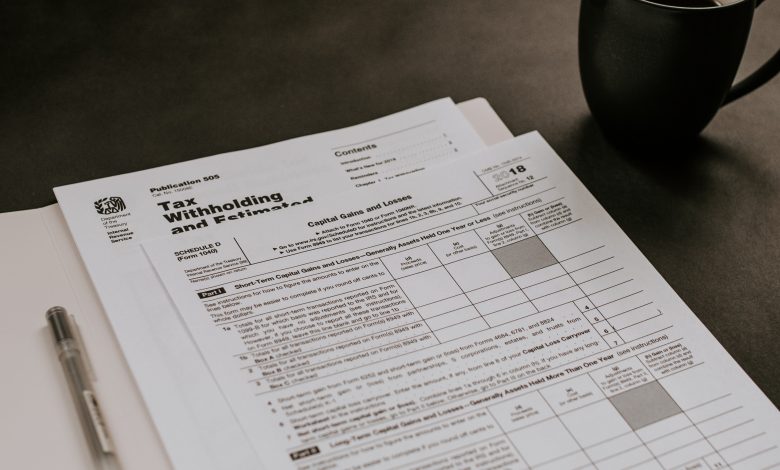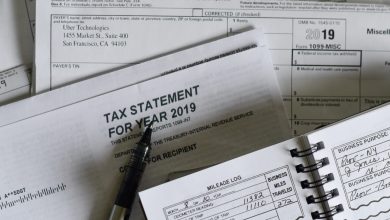Taxes: What Are They and Why We Pay Them

Benjamin Franklin said, “Our new Constitution is now established, and has an appearance that promises permanency; but in this world, nothing can be said to be certain, except death and taxes.”
If there is one thing we can reliably trust to be around for the foreseeable future, it is taxes. Whether you are traveling the world, working online, or grinding through the 9-5 workweek, the government is going to be poking its nose through the door and asking for you to pay those sweet taxes. Within our lives, we are required to pay a host of different taxes, whether it is for the services we choose to use, products we splurge on, our homes, vehicles, and of course, what is taken off our monthly salary. Knowing why we pay taxes, what kinds there are precisely, and when you are required to pay them can help you get your finances in order and more easily manageable.
The Three Main Tax Systems
Progressive Taxes
Progressive taxes are the most basic, in that, as you earn a higher salary, you are entered into a higher tax bracket, which leads to you paying a higher rate of taxes to the government. Some people refer to this system as the graduated income tax. The government utilizes marginal rates of taxation that tax your income from one degree to another depending on how much you make annually.
Regressive Taxes
Unlike the progressive tax, the regressive tax does the complete opposite. As you make a higher salary, the regressive tax rate lowers, with a perfect example being the Social Security tax, which is a sort of payroll tax. As of 2019, earners of up to $132,900 are subject to this tax, and everyone is obliged to pay it. Above that limit, the rate is incredibly low.
Proportional and Flat Taxes
Proportional taxes are quite simply when one pays a tax rate proportional to how much money you have. This is sometimes called a flat tax. Some states do this. For example, a state charging everyone 10% is using a flat tax because everyone is paying the same flat amount.

Taxes and More Taxes
Now that we know the main systems of taxation, how do these end up applying in our day to day lives? Let’s see all the lovely taxes we pay.
- Federal Income Tax: The federal income tax is a charge on your income and earnings. The government utilizes a system of progressive taxes, with around seven tax brackets. Taxes are collected throughout the year, mainly through paychecks. If you happen to be self-employed, then you’ll have to estimate what you need to pay at the end of the year. Most people end up giving too much by years end, so filing for a tax refund is required to get some of your money back.
- State/Local Taxes: Most states have their own set of taxes you must pay as well. Of the 51 states, only seven do not. There is quite a bit of variation between the states in terms of what sort of taxation system they use. Nine of the states use a proportional tax rate, while most of the rest utilize a progressive tax rate system.
- Payroll Taxes and FICA: The majority of companies remove a portion of your salary for tax reasons and send them off to the government. Those who work for themselves must do this themselves. The federal government also taxes 6.2% of income for social security, as well as 1.45% for Medicare. These make up the FICA, which stands for the Federal Insurance Contributions Act. For those making above $200,000 a year, or $250,000 for married couples, an additional 0.9% is taken.
- Self-Employed: If you happen to be working for yourself, the FICA tax does not apply. On the other hand, you are charged a self-employment tax, which is a 15.3% charge on your income that covers the Medicare and Social Security side of things. On the positive side, self-employed individuals are eligible to deduct 50% of their self-employment taxes at the end of the year when filing annual income taxes.
- Taxes on Your Estate: These taxes apply to any valuables, money, or land that you pass on after death. It is taken by the federal government and is charged by some states as well. Depending on the value of your estate, how much you pay varies. The tax exemption for 2020 is around $12,000,000 for the federal government. Each state that does apply their tax has its exemption amount as well.
- Taxes on Inheritance: In the same vein as the estate tax, this tax has to do with any valuables or land that is passed on in the event of someone’s death. Unlike the estate tax though, this tax is charged to the person inheriting the estate. Depending on the value of the estate that a person has inherited, as well as their relationship to the person who passed on, they are taxed a certain amount. Only a few states collect the inheritance tax, and the federal government does not.
- Wealth Taxes: The wealth tax is applied to the net worth of a person. It includes your valuables, annual income, any savings you have, investments, real estate, properties, etc. There is currently no wealth tax being utilized within the United States, although it has been proposed before.
- Property Taxes: There is quite a lot that goes into the buying of a home and having to pay property taxes is one of them. Depending on the value of the house, a certain amount gets charged. These taxes are usually applied at the city or county level. There is some variation in price depending on your location, and whether there is a school nearby as well.
- Ad Valorem Taxes: This tax is applied to goods, services, and property. It is based on the value of the item.
- Consumption Taxes: Some purchases made have a specific tax, known as the consumption tax, applied to them. Most are applied through retailers, who include it in the price of their goods being sold. You won’t know how much you are being charged for this, but just be aware that it exists.
- Sales Taxes: The sales tax is applied to any goods or services you happen to purchase. It is seen on all bills of sale and is applied through states, cities, and local districts, not by the federal government. The rate of taxation varies from place to place, and some districts do not apply any sales tax at all.
- The VAT Tax: The VAT tax, or value-added tax, is also applied to goods that you have purchased. Unlike the sales tax though, which is simply applied at the end of a sale, the VAT tax covers every stage of the development of a product. Since this happens at the production stage, the VAT has already been included in the price you see in the store and is not on any bill of sale for the normal client. This tax is common in many other countries, but it has not been introduced to the US yet.
- Excise Taxes: The excise tax, much like the VAT tax, is included in the price of goods and services at every stage of production. There are only specific products that are forced to pay this tax, such as airlines, gas prices, alcohol, tobacco, and communication services. Some excise taxes are charged on health issues as well, such as the Affordable Care Act and taxes on pollution and gas emissions.
- Surtaxes: These taxes generally only apply to those persons making significant amounts of income. A surtax is a tax layered upon another pre-existing tax. A good example is the Medicare tax we spoke of above, with those above $200,000 in earned income being charged an additional 0.9%.
- Business Taxes: The business tax applies to businesses and corporations. It is generally applied after expenses have been tallied and net revenue has been found. The federal tax rates for businesses are not the same as for the individual. It is a flat tax rate of 21%. After that, states have different tax rates depending on the quantity of revenue a business has made in the year.
- Tariffs: A tariff is a simple tax applied to any products being imported into a country. These taxes are meant to help local businesses have a better chance of competing against foreign companies.

Why Do We Pay Taxes?
Besides the obvious reason, being that the government imposes it upon us and if we do not pay, we go to jail, there are a host of reasons why paying taxes contributes to the public good. Much of the things we take for granted in society, such as the roads we use to travel, require huge amounts of upkeep and cost a fortune. Some of these include, traffic lights, sewage systems, piping, electricity lines, community centers, parks, and public pools, and the list goes on and on. Most of us go through our weeks not thinking about the massive cost of having all this infrastructure around us and keeping it working when crazy humans, nature, and plain old age are doing everything they possibly can to break them apart.
There is, of course, the issue of corruption and misuse of tax revenue, and this is an important point that must be repeatedly brought up to make sure that the heads of state and country stay honest and fix the many dysfunctional parts of the system that keep popping up yearly, but we must not let that blind us to all that we get from our precious dollars being taken away and sent off for the public good. So just keep in mind that taxes are one of the main reasons we have so many conveniences in our modern-day lives.



